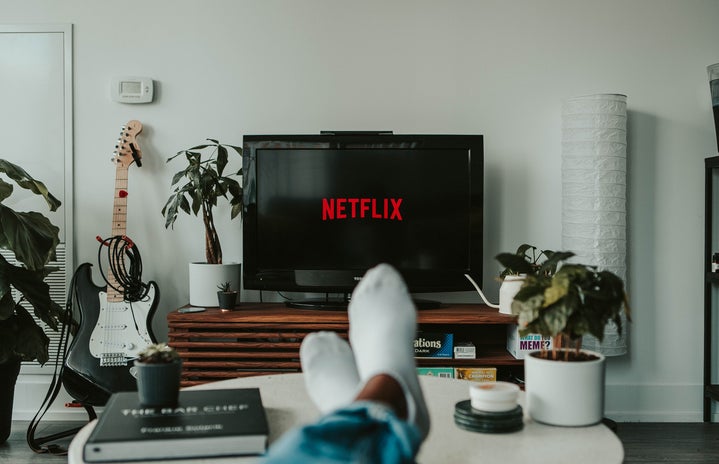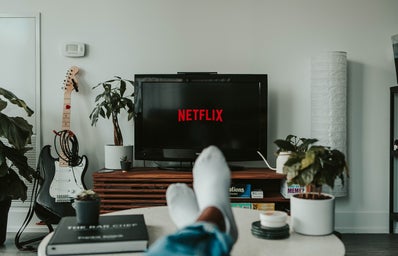*spoiler alerts ahead!*
Like most people, I’ve never had the opportunity to see my body type in the film industry. A majority, if not all, of television shows and movies present only one body type, which has become known as the ‘ideal’ in the film industry. Children are extremely absorbent about what they view during their younger years, so for me, never seeing something that represented myself made me believe that I was not capable of being the main character, or getting my own prince charming in the end.
However, when I did see my body’s representation, it was strictly as a background character, the comedic relief, or only in the beginning until they eventually morphed into that ‘ideal.’ This lack of body diversity is the start of millions of body insecurities among young viewers like myself and has ultimately skewed my perception of romance and self-love.
In recent years, the film industry has improved in regards to attempting to include more body types in main roles. However, the problem is that negative connotations are still being attached to bigger bodies, but hey we are still including them right? Wrong. Although media such as The Duff and Insatiable, are technically including these bigger bodies in main roles, they still have harmful stereotypes like the ‘designated ugly fat friend’ or continuing the harmful narratives of ‘you can only become pretty and popular if you become skinny.’ Although we still have ways to go in promoting body inclusivity in the film industry, there has been at least one breakthrough. This breakthrough comes in the form of a Netflix original, released in 2018, known as Dumplin’.
The main character, Willowdean Dickson, is a strong-minded teen and daughter of a former beauty pageant queen. Despite her mother being in her life, Willowdean is mostly raised by her aunt who they relate to both being plus-size individuals. But after her aunt passes away, Willowdean is forced to continue her self-love journey, attempt to heal her relationship with her mother, and simultaneously mourn a loved one. As the audience is introduced to her mother, it becomes evident why Willowdean resonated more with her aunt than her own mother. Her mother appears to value the ‘ideal’ body type, investing more time into her beauty pageant contestants than her own daughter. Much like many other movies with plus-size individuals as lead roles, Willowdean’s weight is a main topic as she endures the stereotypical bullying and backhanded compliments from both her mother and the people around her. However, the conversation about her body is different from most movies in the film industry as the audience gets taken along Willowdean’s own self-love journey and also her romantic love story with her coworker, Bo.
One of the most monumental moments of the movie is when Willowdean and her friends, deemed the stereotypical ‘outcasts’, decide to join her mother’s beauty pageant to make a statement and defy the societal standards of beauty. At first, her mother is reluctant and expresses her embarrassment as she believes Willdowdean does not fit the mold of a pageant queen.
However, on the day of the pageant, her mother comes to realize the importance of self-love rather than praising harmful societal narratives. In particular, a scene in which Willowdean and her best friend go out on stage with the words ‘everybody is a swimsuit body’ painted on their swimsuits, is the first real representation of the body positivity movement. Not only do the characters get positive reinforcement from the crowd, but they also make bold moves in regards to stepping out of their comfort zone in a setting that reeks of harmful societal perfectionism.
As for Willowdean’s love story, the audience witnesses the chemistry between herself and her coworker, Bo. Although there is a mutual attraction between the two of them, Willowdean becomes the perfect representation of self-sabotage as she ultimately decides Bo’s feelings for him. Despite Bo’s romantic feelings towards Willowdean she rejects him out of her own insecurities, specifically pointing out that he shouldn’t like her because of her body. However, Bo stays persistent and in the end, Willowdean realizes she is worthy of love as they share a passionate kiss. Bo and Willowdean’s romance is a huge step in plus-size representation as this is a rare occurrence of a plus-size individual getting the guy in the end. Additionally, Willowdean does not succumb to male validation but rather gains confidence in herself before pursuing anything with Bo. This in itself is a valuable lesson, as self-love is becoming more important than gaining love through the validation of a significant other, as Willowdean does in the movie.
This movie has contributed to major conversations surrounding body inclusivity in the film industry and has created an opening in a world where body diversity needs to be celebrated more. Dumplin’ also poses more questions and possibilities for future films that feature more diverse body types. What about the body diversity of the lead male actor, or from the point of view of a male? How about a cast made up of a majority plus size actresses and actors? When can love stories be given to leads with disabilities? The possibilities are truly endless in the ways the film industry can embrace different bodies and life experiences, but this won’t happen until we all open our minds and look at the world through the eyes of someone else.


